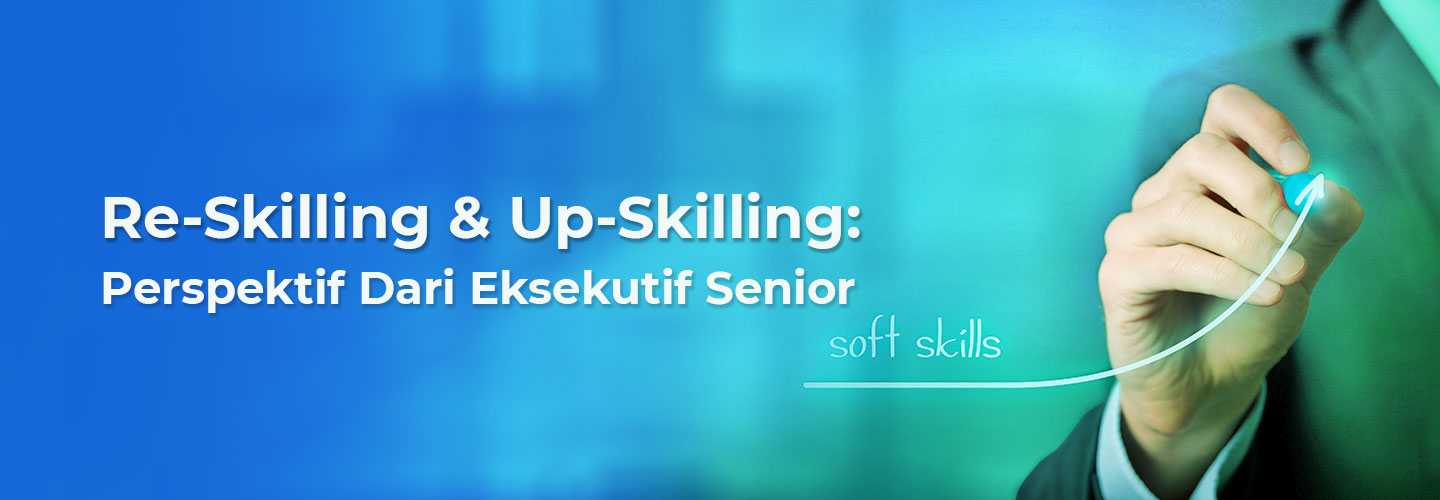Reskilling and upskilling: a senior executives' perspective

In the current business landscape, the demand for reskilling and upskilling is increasing exponentially. Companies are realizing the importance of developing and nurturing their employees' skills in order to stay competitive in a rapidly evolving market.
According to the PwC Asia Pacific Workforce Hopes and Fears Survey 2023 (2023) , 59% of senior executives in Asia-Pacific believe that the skills needed for their jobs will significantly change in the next five years. This statistic highlights the recognition among senior executives of the need to adapt and stay relevant in an ever-changing business environment. Furthermore, the survey found that senior executives have the highest likelihood of accessing reskilling and upskilling opportunities.
This finding may stem from the fact that senior executives often have more resources and influence within their organizations to pursue professional development initiatives. Additionally, senior executives may also have a stronger awareness of the need to continuously learn and adapt in order to maintain their leadership positions and effectively navigate the challenges of a dynamic business environment.
However, a unique challenge arises when it comes to reskilling and upskilling senior executives who are typically from the Generation X and Baby Boomer cohorts. These older generations may have different perspectives on reskilling and upskilling compared to the majority of the workforce, which consists of millennials (The World Economic Forum, 2021).
in addition, While younger employees often view reskilling and upskilling as opportunities for growth and advancement, older senior executives may see it as a threat to their established expertise and authority (Mande, W., 2019). This perception can create resistance to change and hinder the adoption of new skills in senior leadership roles.
Nevertheless, it is crucial for senior executives to recognize the importance of reskilling and upskilling, especially in the face of digital transformation and technological advancements(Meng, A. et al., 2022). As highlighted by various studies, the skills required for the economy are rapidly changing, and senior executives must stay relevant and adaptable to meet these new demands.
An essay by Deddi Tedjakumara titled "Can you teach an old dog new tricks?, Overcoming Challenges of Re-Skilling and Up-Skilling" (2023) suggests that reskilling and upskilling older generations may be more difficult but not impossible, due to the concept of neuroplasticity. Neuroplasticity refers to the brain's ability to reorganize and form new neural connections throughout a person's lifetime. This means that regardless of age, individuals have the potential to expand their knowledge and acquire new skills. Additionally, the depth of focus on a specific topic can also play a role in one's ability to acquire new knowledge and skills. For example, individuals who have a more diverse range of learning experiences may find it easier to absorb and apply new knowledge, as opposed to experts who focus on a single area of expertise.
Reskilling and upskilling opportunities for older workers, particularly senior executives, are crucial to bridge the gap in skills between different generations in the workplace and ensure a smooth transition in a rapidly evolving business landscape. Moreover, reskilling and upskilling opportunities not only benefit senior executives themselves but also have significant implications for organizations and the economy as a whole.
As mentioned in the World Economic Forum report, reskilling is essential for employees to adapt to new technological developments (The World Economic Forum, 2020). This is particularly important in the context of digital innovation, which is rapidly transforming industries. By providing opportunities for reskilling and upskilling, organizations can ensure that their workforce remains equipped with the necessary skills to thrive in the digital era.